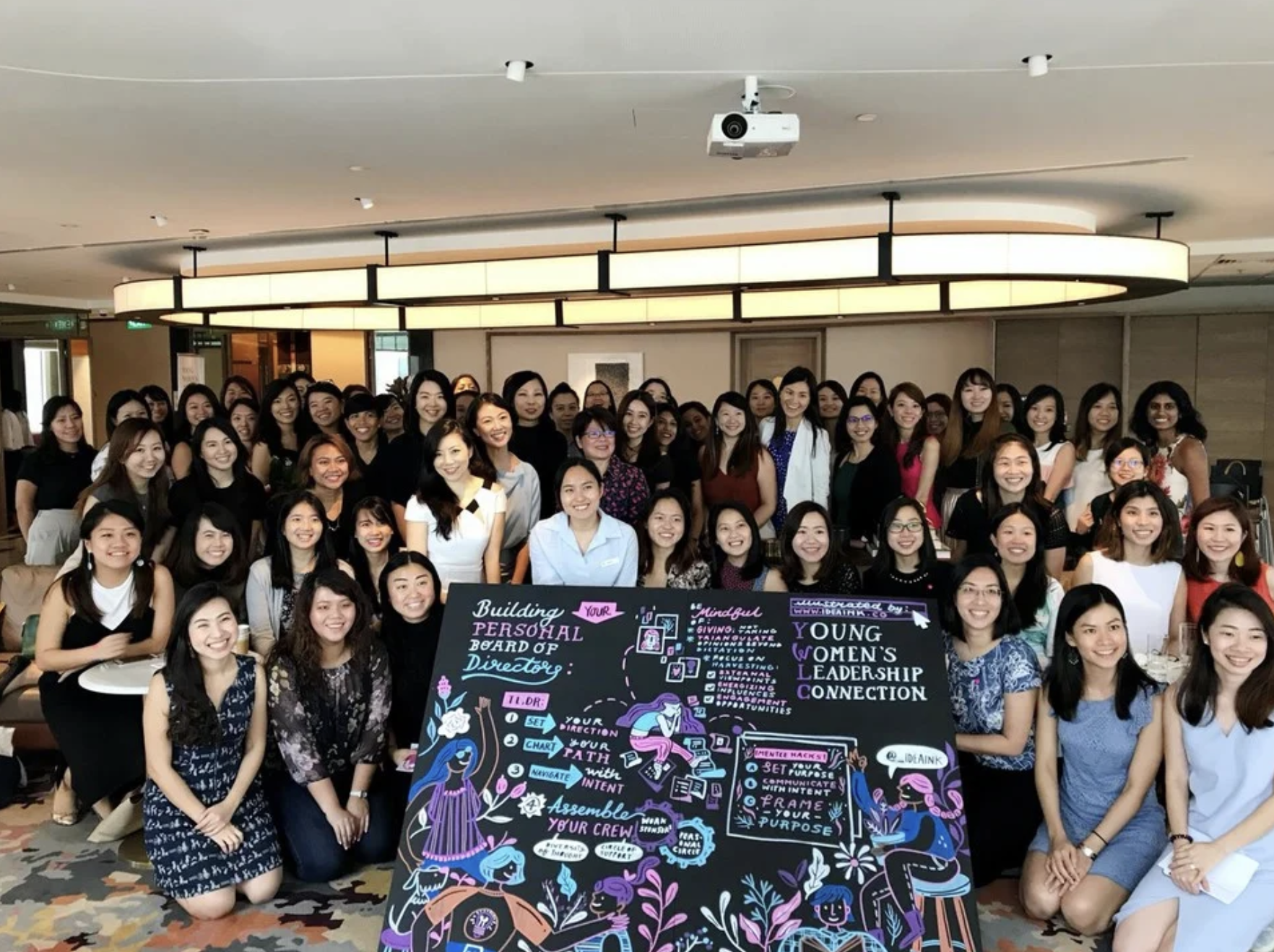So grateful that after months of planning, we had an amazing YWLC X Bain & Company x The Great Room Offices workshop learning how to build our personal board of directors. Really thankful for these superwomen who have spent their precious Saturday morning sharing with us incredible advice on how they got to where they are today. Many of us left the workshop feeling so inspired by these role models!

Panelists:
Goh Swee Chen (Chairman, Shell Companies in Singapore)
Low Ann Ann (APAC Leadership and Development Director, LinkedIn)
Jaelle Ang (Co-founder and CEO of The Great Room Offices)
Lee Xue Ling (Case Team Leader at Bain & Company)
It is my hope that we could pay it forward and help others in the future too. As a first step, I decided to compile my notes and share it with the wider community so that more can benefit. If you have any other tips or advice to share, feel free to let me know 🙂
How do you start in building your personal board of directors?
You got to know what you want, what you stand for and set the direction towards your path. You are the CEO of your life so you create the vision and assemble a board of directors that will support you in achieving your goals.
What kind of roles should you look for in your board?
Positions include someone who you see as a role model, who has deep knowledge of your career/industry, who is co-invested in your success, who knows you deeply from a personal standpoint
Look for mentors as well as sponsors who are invested in your success, opens doors for you and put their necks on the line for you
How do you fill these roles?
Raise your hand for opportunities to get to work with different people or volunteer to help mentors you have identified
Make tactical small asks for advice: little 15-20 minute chats in the hall or taxi ride can add up
Be sure to “fit in, but stand out”. Show that you are in line with the broad organizational culture but also be different and creative. Create a succinct elevator pitch about yourself so you can make an impression
Find a common thread / similarities between you and your mentors. People are more inclined to help others who they can identify with
Stand out in your role. Go beyond your pay grade and job title. Remember the PIE concept: Performance, Exposure and Image
Be relentless in a soft way when asking for requests. Also, you do not have to ask them explicitly to be on your board
Understand the bigger goal they are trying to achieve and show that you are willing to do what it takes to achieve it by over-delivering and helping them fulfill as much of their goals as possible
What are important things you should take note of?
Ensure that you have diversity in your board. Look for people in different industries and roles as this would widen your perspectives
Remember that even potential advisors would have their own fears and anxieties. Don’t be afraid to share yours and be vulnerable, but also be constructive and specific in your ask.
‘You want a mentor who will be ‘nose in, hands out’: cares enough to stay in touch but doesn’t try to prescribe what to do’
Strike a balance between being smart on what you share and its implications vs being personal and vulnerable
As you go through different phases in life, know who would be the best to build the best version of you at that point in time
How do you sustain the relationship with your directors?’
Share with your advisors how you followed up on their actions or key milestones
Always inculcate a growth mindset, show you are teachable
Help them help you – example, be specific about the advice you are looking for
Check in from time to time e.g by sharing a relevant article, help to connect them with other people
How can you best prepare yourself during this process?
‘You need to have the arrogance to believe you’re worth the time and the humility to be teachable’
‘What’s the worst that can happen? Overthinking can leave you frozen in inaction. Put yourself out there’
Do not take things personally if they are unable to help you at that point in time. They are really busy people. Circle back in future or look for other mentors

Be The First To Comment